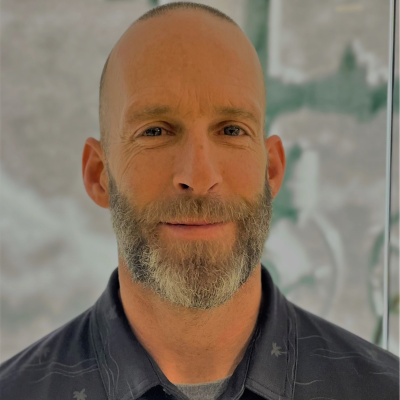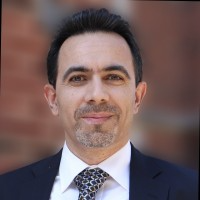Main Conference Day 1: Wednesday, June 3, 2026
View the schedule for Day 1 of the Methane Mitigation: Technology & Innovation Summit, where international engineering excellence meets executive strategy.
7:00 - 8:00
EARLY RISER BREAKFAST: Built to Last, Designed to Emit Less: Engineering Reliability and Cost Efficiency into Low-Emission Facilities
The most effective emissions reduction strategies often start long before operations begin — at the design table. This session explores how engineering decisions around storage, compression, and process reliability can dramatically reduce methane emissions while improving operational performance. From pressure vessel selection to vapor recovery and automated control, operators are finding ways to design reliability and emissions performance into the same blueprint — achieving measurable reductions without compromising cost or uptime.
7:00 - 8:00
Registration & Networking Breakfast
8:00 - 8:10
Chair’s Opening Address
8:10 - 8:55
Keynote Panel: Global MRV Spotlight: Securing Supply Chains & Energy Security
Anna Hodshire -
Atmospheric Chemist,
Colorado State University (METEC)
From the U.S. GHGRP and EPA methane rule to the EU Methane Regulation, OGMP 2.0, and emerging national systems, the global methane MRV landscape is rapidly taking shape. This session provides a comparative look at how frameworks differ in scope, data expectations, verification requirements, and timelines and what convergence could look like in the years ahead.
- Compare key elements of major MRV frameworks (GHGRP, OGMP 2.0, EU Methane Regulation, etc.).
- Identify opportunities and barriers for harmonization across jurisdictions.
- Understand how operators can prepare for verification-ready data under evolving standards.
- Explore the implications of MRV convergence for global trade, certification, and compliance.
8:55 - 9:25
Case Study: From Manual Control to Smart Logic: Process Automation and Predictive Maintenance for Emissions Reduction
While much of the industry’s physical infrastructure has remained unchanged for decades, automation and predictive maintenance are transforming how facilities operate. Advanced control logic, sensor networks, and real-time analytics now enable operators to anticipate failures and prevent emissions events before they occur. This session explores how process automation and condition-based monitoring are driving reliability, safety, and measurable emissions reductions across oil and gas facilities.
- Examine how advanced control systems and logic programming minimize venting, flaring, and unplanned downtime
- Understand how predictive and preventive maintenance approaches can proactively prevent emission-causing events
- Learn how real-time data and automation tools improve decision-making and operational visibility
- Evaluate lessons learned from early adopters using smart control strategies to enhance both reliability and emissions performance
9:25 - 9:55
Case Study: A Decade of Data, Decisions, & Direction: Shell’s Global OGMP Journey
Allison Fisher -
Principal Methane Program Manager - Global Shell Projects and Technology,
Shell
In 2018, Shell announced a target to keep its methane emissions intensity, for both oil and gas, below 0.2% by 2025. Shell then joined the Oil & Gas Methane Partnership (OGMP) 2.0 in 2020 and has since implemented methane measurement campaigns across more than 100 operated assets spanning 8 countries. After achieving the OGMP 2.0 Gold Standard in methane reporting, Shell has built one of the most comprehensive methane datasets in the industry. This session will explore how Shell’s evolving methane measurement practices are influencing its abatement strategy and internal decision-making to enhance methane performance and achieve real reductions.
- Overcoming technical and operational challenges across diverse asset types
- Leveraging cross-functional collaboration to embed methane strategy company-wide
- Leveraging data sharing across the organisation to derive patterns or anomalies, and inform decision-making for methane abatement

Allison Fisher
Principal Methane Program Manager - Global Shell Projects and TechnologyShell
9:55 - 10:30
Morning Networking Break & Access to Innovator Zone
Step inside the Innovator Zone, where the next generation of methane technologies come to life. This interactive poster session showcases high-potential startups and solution providers presenting breakthrough innovations across detection, quantification, data & analytics and mitigation categories. Attendees will have direct access to founders and product leaders to explore real-world applications. A dedicated space to discover what’s emerging, what’s scaling, and where to invest your attention next.
Operations Stage
10:30 - 11:00 Panel: Aligning Operational Reliability with Emission Goals: Asset Integrity 101 Carolina Rodríguez González - Head of Environment Networks Americas, ENGIE MexicoRyan Steadley - Vice President of Regulatory Affairs, Colorado Oil & Gas Association
- Analyze how methane mitigation initiatives impact asset reliability, uptime, and long-term equipment performance.
- Examine real-world examples of embedding emissions management into integrity, maintenance, and engineering workflows.
- Evaluate how operators are balancing OPEX, downtime risk, and carbon intensity when prioritising asset upgrades.
Operations Stage
11:00 - 11:30 Presentation: Powering Performance: How Remote Power and Methane Mitigation Drive Scalable Well Pad Solutions- Pinpointing the Invisible: Discover how targeting scattered, low-volume sources can add up to significant methane reductions
- Proving the Payback: See real-world results where operational savings and emissions cuts go hand in hand
- Scaling What Works: Lessons learned for replicating success across diverse sites and assets
Operations Stage
11:30 - 12:00 Case Study: Targeted VRU Optimization: Chord Energy’s Data-Driven Approach to VRU Performance- Highlight the emissions, production, and financial gains achieved through targeted VRU optimization
- Share practical lessons and best practices for other operators looking to maximize vapor recovery outcomes
- Explore the operational and design considerations that made optimization successful — from equipment upgrades to data-driven decision-making
Operations Stage
12:00 - 12:30 Case Study: Designing Out Emissions: Devon Energy’s Journey to Low-Leak, Tankless Facilities Joe Leonard - Facilities Engineer, Devon Energy- Understand how Devon’s low-emission facility design eliminates key venting sources through tankless storage and pressure vessel integration
- Explore the cost–benefit tradeoffs between traditional atmospheric tanks and next-generation pressure systems
- Learn how process control and advanced monitoring technologies enhance reliability, efficiency, and emissions reduction
- Identify practical steps to transition toward low-leak, high-integrity facility design across upstream operations
Strategy Stage
10:30 - 11:00 Panel: Life After GHGRP: Inside the New Reality of U.S. Methane Measurement & Reporting Jacob Fournier - Manager, Environmental Projects, MPLXBj Carney - Vice President of Geoscience and Innovation, Northeast Natural Energy
Dustin Minton - Environmental and Northern Region HSE Director, Continental Resources Inc
- Analyze how U.S. operators are reporting methane performance in sustainability reports and investor disclosures in the absence of GHGRP
- Discuss how methane is being measured, quantified, and validated internally as companies build new MRV systems without a federal baseline
- Evaluate why operators are choosing to participate—or not—in voluntary frameworks such as OGMP 2.0, MiQ, or One Future, and how these decisions affect market access and commercial positioning
Strategy Stage
11:30 - 12:00 Case Study: Certifying the Offshore Frontier - Can Methane Certification Create Commercial Value in the Gulf of America? Carson Morey - Environmental Engineer for Gulf of Mexico, ShellIn the complex offshore environment of the Gulf of America, Carson leads emissions accounting across Shell’s platforms, supporting progress toward credible third-party methane certification. This session explores how building high-quality, verifiable measurement systems in a technically and logistically challenging setting supports certification readiness while also shaping market perception, risk management, and potential commercial positioning. Drawing on practical implementation experience, Carson will share the realities of improving data confidence offshore, navigating operational constraints, and aligning teams to deliver emissions performance that can withstand external scrutiny.
- Explore how offshore emissions accounting systems can be designed to support both certification requirements and emerging commercial expectations
- Discuss whether higher-confidence measurement and verification can strengthen market credibility and differentiate supply
- Examine how operational constraints offshore influence the cost, feasibility, and commercial viability of certification
- Consider how cross-functional alignment across engineering, operations, sustainability, and commercial teams underpins credible, value-aware certification pathways
- Explore how certification readiness may help future-proof offshore assets against evolving buyer, policy, and investor expectations
Strategy Stage
11:00 - 11:30 Presentation: Carbon Credits as a Commercial Lever in Methane Abatement Strategies- Analyze how leading operators are using carbon credits to complement, not replace, direct methane reduction investments
- Examine how methane-related credits are being assessed for quality, pricing, and integration into capital allocation and decarbonisation roadmaps
- Evaluate where carbon markets are improving project economics for marginal abatement opportunities and accelerating deployment
- Discuss how operators are managing disclosure, auditability, and reputational risk as scrutiny around carbon credit use intensifies
Strategy Stage
12:00 - 12:30 Case Study: Building a Business Case for Methane Management: Beyond the Regulatory Stick Angela Zivkovich - Environmental and Conservation Policy Manager, OxySarah Izzat - Sr. Manager Global Sustainable Solutions, Oxy
- Demonstrate how the operator quantified the financial value of methane reduction
- Showcase how emissions data, source attribution, and uncertainty analysis were used to target high-impact sites and justify tech investment
- Explain how various functions aligned on ROI, risk mitigation, and capital allocation in the absence of clear regulatory mandates.
- Highlight how voluntary initiatives, certification, and disclosures factored into the company’s strategy for investor confidence, commercial differentiation, and market access
Financing Stage
10:30 - 11:00 Panel: The Carrot & Stick: Creating Real Market Incentives for Methane Management Sara Lopez - Decarbonization and Energy efficiency Delegate, Ep Petroecuador- Examine what market conditions, price signals, and contractual structures are required to make methane mitigation a commercially attractive opportunity for operators
- Analyze current barriers — from fragmented standards to verification costs — that limit the scalability and bankability of methane-focused commercial mechanisms
- Discuss where certification, differentiated gas markets, and performance-based contracting are headed, and what must change for these mechanisms to deliver durable value for both buyers and producers
- Consider methane updates to SASB standards under ISSB and potential impact upon disclosures
Financing Stage
11:00 - 11:30 Presentation: MAFT Update: Scaling Capital for Methane Abatement in 2026 and Beyond TJ Conway - Principal, Climate Intelligence Program, Rocky Mountain Institute (RMI)- Understand MAFT’s evolving role in mobilizing capital for methane mitigation projects globally
- Explore how the taskforce is shaping market standards for financing methane abatement
- Gain insight into what project developers and operators must demonstrate to attract MAFT-aligned capital
- Learn how MAFT is positioning itself within the broader climate and transition finance ecosystem
Financing Stage
11:30 - 12:00 Panel: Staying Investable & Insurable: How Investors & Insurers Are Repricing Methane Risk Navishka Pandit - Assistant Manager, Federated Hermes Investors- Understand how methane performance is now influencing investment decisions, cost of capital, and insurance availability across energy portfolios.
- Analyze what financiers and underwriters are looking for in credible measurement, reporting, and mitigation strategies.
- Discuss how methane risk is being translated into financial risk — from asset valuation and credit ratings to coverage exclusions and premiums.
- Explore what operators must demonstrate to remain “investable and insurable” in a tightening climate-risk landscape.
Financing Stage
12:00 - 12:30 Presentation: Unlocking Global Access: Trade Pathways for Scaling Methane Mitigation Technology Kasturi Narayanan - Senior Trade Officer – Energy and Life Sciences, Consulate General of Canada in Houston- Understand how trade policy, export finance, and regulatory alignment can accelerate access to methane technologies in emerging and developing markets
- Explore barriers currently restricting global technology transfer and how they can be overcome
- Gain insight into how governments, multilaterals, and industry can collaborate to create fair, open, and competitive markets
- Learn what policy, funding, and partnership mechanisms are already working to de-risk deployment and scale adoption across diverse regions.

Kasturi Narayanan
Senior Trade Officer – Energy and Life SciencesConsulate General of Canada in Houston
12:30 - 13:30
Networking Lunch & Live Technology Demos /Ad Board Lunch and Learn
Refuel, reconnect, and experience innovation up close! During the lunch break, explore live technology demos from leading solution providers and see how the latest tools can transform your methane mitigation strategies in-practice.
Here’s the sweet part: Attend a demo and grab a free ice cream token - the perfect way to cool off from the Texan heat while discovering cutting-edge solutions
Technology In Action Streams
Detection and Quantification
13:30 - 14:00 Panel: Scaling Technology Adoption Across Diverse Asset Types Carolina Rodríguez González - Head of Environment Networks Americas, ENGIE Mexico- Discuss how adoption strategies differ across upstream, midstream, downstream and offshore assets
- Describe the operational and technical barriers to scaling across heterogeneous asset portfolios, from equipment constraints to workforce readiness
- Explore how operators are defining the right technology mix, including sequencing different detection and monitoring tools and setting appropriate deployment frequencies by asset type
- Examine how cost, risk and asset maturity shape when, where and how technologies move from pilots to scaled deployment
Detection and Quantification
14:00 - 14:30 Presentation: Closing the Gap: The Art & Science of Emissions Inventory Reconciliation- Explore why bottom-up inventories and top-down measurements diverge, and how leading operators are reconciling the two
- Analyze the tools and data workflows needed to build defensible, auditable methane inventories
- Understand how improved reconciliation strengthens MRV readiness, investor confidence, and regulatory positioning.
- Highlight practical lessons from operators moving from annual reporting cycles to near-real-time inventory management
Detection and Quantification
14:30 - 15:00 Case Study: From Assumptions to Evidence: Using Direct Measurement to Redefine Emission Factors Jerry Dismukes - Manager, Air Compliance, QB ENERGY, L.L.C.- Demonstrate how large-scale high-flow sampling campaigns are enabling operators to replace default factors with defensible, site-specific emission data
- Explore how nitrogen blanket data and direct measurements are being combined to develop statistically robust emission factors for pneumatics and fugitives
- Show how this work is strengthening emissions inventories, regulatory compliance (Colorado Reg 7), and OGMP Level 4/5 readiness in the absence of Subpart W
- Share early insights from industry collaboration on next-generation emission factor development
Detection and Quantification
15:00 - 15:30 Case Study: Beyond Reporting: Building a Verification-Ready OGMP Level 5 Strategy in a Shifting Global Policy Landscape Greg Ross - Senior Climate Analyst, CheniereAs OGMP 2.0 evolves alongside emerging methane regulations, operators are being pushed beyond reporting toward assurance, credibility, and strategic value. This case study shares practical lessons from one of the first LNG operators to pursue limited third-party assurance on a Level 5 inventory.
- Explore a clear, practical roadmap to achieving OGMP 2.0 Level 5, moving from pilots to auditable, repeatable systems
- Discuss what limited third-party assurance looks like for Level 5 inventories, including how uncertainty and reconciliation are addressed in practice
- Examine how OGMP participation supports international compliance readiness and regulatory equivalency discussions
- Assess the strategic and commercial value of voluntary MRV in supporting credibility, market access, and long-term positioning
Data Management & Analytics
13:30 - 14:00 Panel: Operationalizing Methane Data: Driving Targeted Abatement and OPEX Ethan Boor - Air & Environmental Manager, Camino Natural ResourcesRyan Donina - Air Quality Specialist, TG Natural Resources, LLC
Sriprabhu Sridharan - Senior Advisor | Technology, Strategy & Sustainable Operations, EXXON
DaMonica Pierson - Environmental Manager, Gulf of Mexico Assets, Shell
- Explore what “the right kind of data” is for compliance, operational efficiency, and strategic decision-making
- Understand how to embed a data-driven culture across operations and executive workflows
- Examine best practices for integrating methane data with SCADA and other operational systems
- Evaluate the role of external partnerships and platforms in making methane data more actionable
Data Management & Analytics
14:00 - 14:30 Presentation: What AI Can (and Can’t) Deliver for Predictive and Proactive Methane Management- Explore which AI models are most effective for various emissions management applications
- Understand the critical role of high-quality, structured data in driving accurate AI insights
- Examine real-world use cases where AI has enhanced emissions detection, reporting, and operational decision-making
- Identify best practices for integrating AI outputs into existing monitoring platforms and compliance workflows
Data Management & Analytics
14:30 - 15:00 Panel: Mission Impossible? Building Value Chain Transparency: Methods, Models, and Real-World Lessons- Understand how gas attribute systems and registries are evolving to track methane performance
- Explore mechanisms for ensuring data traceability and verification across complex supply chains
- Learn how digital MRV systems are enabling credible, tradeable low-emission gas
- Identify the technical and policy challenges to global interoperability and trust
Data Management & Analytics
15:00 - 15:30 Case Study: Harnessing Integrated Data for Operational and Emissions Intelligence: A Red Cedar Story Ethan Hinkley - Air Quality Compliance Manager, Red Cedar Gathering Company- Learn how to integrate diverse methane datasets into a unified emissions intelligence framework.
- Understand methods for aligning environmental and operational data to support strategic decision-making.
- Explore approaches for using data transparency to strengthen stakeholder confidence and regional credibility.
- See how a data-driven approach can enhance compliance readiness and demonstrate proactive methane leadership.
Reduction
13:30 - 14:00 Panel: Mind the Slip! Tackling Methane from Combustion Sources and Engines Pejman Kazempoor - Associate Professor, University of Oklahoma- Explore how engine design innovations and retrofit solutions are reducing methane slip across gas compression and power applications
- Understand trade-offs between efficiency, reliability, and emissions performance
- Examine measurement and verification approaches for quantifying methane slip
- Discuss how collaboration between OEMs and operators can accelerate the path to low- or zero-slip combustion systems
Reduction
14:00 - 14:30 Presentation: Next-Generation Flare Management: Design, Digital Monitoring, and Measurable Abatement Results- Understand how flare design and control upgrades can improve combustion efficiency under variable flow and environmental conditions
- Explore how new monitoring and feedback technologies are transforming flare performance verification
- Learn how data-driven flare management can minimize downtime, optimize maintenance, and enhance environmental compliance
- See case-based examples of how operators are achieving measurable reductions through flare modernization programs
Reduction
14:30 - 15:00 Case Study: Engineered to Emit Less: Designing Low-Emission Facilities from the Ground Up Adam Redling - Manager, Facilities Engineering & Emissions, Range Resources Corp- Examine how operators are building emissions reduction into facility design from day one
- Compare design considerations for high-production vs. low-production assets — what changes and why
- Evaluate equipment and component choices that balance performance, emissions reduction, and cost efficiency
- Explore how engineering, operations, and sustainability teams collaborate to deliver long-term, low-emission performance
Reduction
15:00 - 15:30 Case Study: From Measurement to Impact: Leveraging Data and MACC Curves to Drive Abatement at Lime Rock Resources Eric Hasso - Director- Environmental & Safety, Lime Rock Resources- Explore how operators leveraged MACC curves to prioritize high-impact, cost-effective abatement actions
- Learn practical steps for translating emissions data into executable reduction strategies within operational constraints
- Discover which technologies and Best Available Techniques (BAT) delivered measurable reductions
- Understand how these strategies strengthened ESG positioning and investor confidence
15:30 - 16:15
Solution Insight Session & Afternoon Networking Break
Are you looking to learn more about a specific methane solution, or want to explore the new innovative technology in this space? We’ve got you covered. Step into the dynamic world of our Solution Spotlight Session, where innovation meets opportunity! This is your chance to engage directly with leading solution providers and uncover how their technologies can impact your operations. In this fast-paced session, you’ll have 5 minutes at each booth to dive into the specifics of each solution, ask pressing questions, and discover tailored benefits for your operational setting. Make the most of your time out of the office by gaining actionable insights that you can bring back to your team, ready to implement and drive real change.
These 45‑minute sessions offer focused, hands‑on discussions with experts, giving you practical methane‑management insights you can directly translate into your operations.
Mini Workshops
Discuss the challenges of creating a ‘single source of truth’ that provides a comprehensive and accurate data depiction from all measurement campaigns when results are derived from diverse detection methods.
Take a practical look at how operators are keeping methane programs alive and relevant as external pressure shifts, internal priorities evolve, and budgets get tighter. We’ll discuss what’s helping leading companies avoid backsliding, make the investment case internally, and keep methane on the strategic roadmap rather than in the compliance box.
An open, honest discussion on what it really takes to scale a methane technology company in a market where demand signals shift, procurement cycles drag, and customer priorities vary widely. We’ll explore how companies are navigating commercial risk, building resilient go-to-market strategies, and positioning for long-term growth rather than short-term wins.
Examine how methane technologies developed in North America and Europe perform in Latin American settings. This session will cover unique operational conditions, import and deployment hurdles, and practical strategies for adapting solutions to local realities. Participants will gain insights on what works, what doesn’t, and how to make global innovations viable regionally.
Explore how operators are moving beyond detection and into consistent, large-scale methane abatement — including how different technologies are being integrated into existing workflows, maintenance cycles, and capital planning.
Dive into the unique reality of offshore methane management — from limited access windows and harsh marine conditions, to the operational trade-offs between production, safety, and emissions control. The session will explore what’s actually feasible offshore today, what’s still aspirational, and where technology and operational practices are starting to close that gap.
17:00 - 17:40
Panel: Europe in focus: How Methane Policy Is Reshaping International Gas Markets, Contracts & Compliance
- Analyze compliance milestones for importers: MRV equivalency by 2027, methane intensity reporting by 2028, and performance thresholds by 2030, plus implications for global LNG and pipeline contracts
- Debate technical challenges in implementing OGMP 2.0 Level 4/5 methodologies, independent third-party verification, and harmonizing bottom-up and top-down quantification approaches
- Assess strategic consequences for European operators and importers: contract negotiations, liability risks, and interoperability with international standards amid tightening EU climate objectives
17:40 - 17:45
Chairs’ Closing Remarks
17:45 - 18:45
Texas Ties Evening Networking Reception
Saddle Up for an Evening of Southern Charm and Strategic Connections! When the world’s leading minds in methane mitigation gather, great ideas deserve a great Texas welcome. Join us for an unforgettable networking reception where canapés, refreshments, and live music set the stage for meaningful conversations and new collaborations. Feel the rhythm of Texas hospitality as you two-step into partnerships that drive innovation and impact.



























